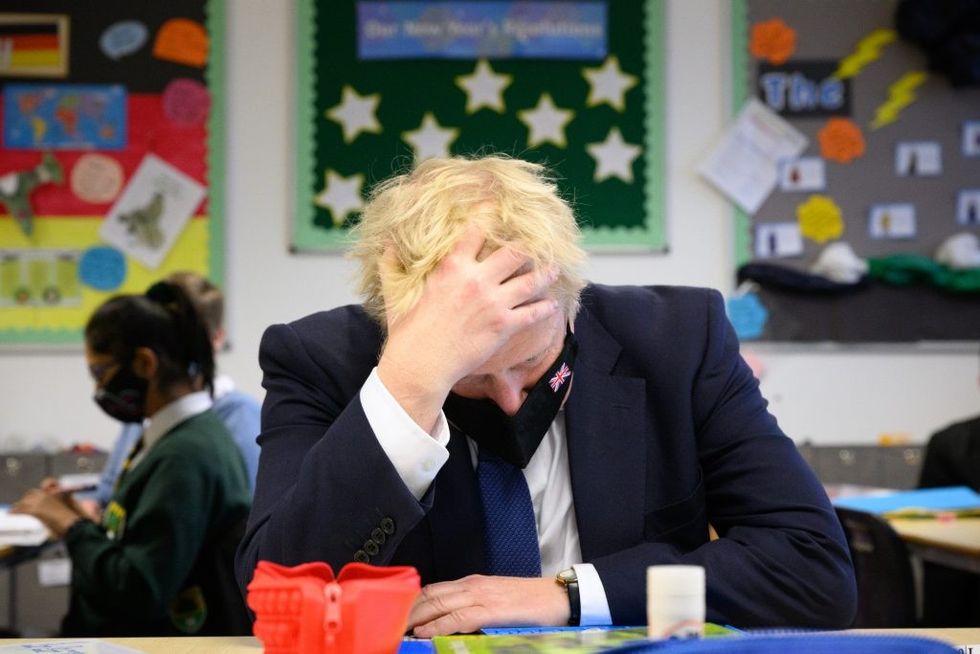PRIME MINISTER Boris Johnson on Wednesday (12) offered "heartfelt apologies" for attending a lockdown-breaching party held in his Downing Street garden, but deflected calls to resign.
It comes a day after he skipped an urgent question session in the Commons, instead sending Paymaster General Michael Ellis to answer on his behalf.
MPs shared their lockdown ordeal and grief in the Commons on Tuesday (11), recalling how they followed lockdown rules at the start of the pandemic.
Labour’s Afzal Khan described how he sat in the car outside the hospital where his mother died, to be close with her.
Khan said yesterday: “My beloved mum died of Covid in March 2020. She died alone in hospital while I sat in the car outside, trying to be as close to her as I could.
“Even burdened with our grief, my family obeyed the rules. Just three days after the Downing Street party, we marked a solemn Eid, the first without my lovely mum.
“When asked by Sky News about the parties, the prime minister did little but smirk and nod.
“He should be here today, but as he is not, can the minister confirm whether the prime minister will be apologising to bereaved families like mine for the anguish, pain and torment caused not just by hosting these parties, but for continuing to lie about it.”
This afternoon (12), breaking his silence over the latest of a slew of allegations, Johnson said he regarded the boozy get-together in May 2020 as a work event for Downing Street staff.
He added that he did not appreciate how it would look to millions of Britons who were respecting Covid rules, even missing out on farewells to dying relatives.
"And to them and to this House I offer my heartfelt apologies," Johnson told a stormy session of questions in the Commons on Wednesday (12).
Labour leader Sir Keir Starmer dismissed the apology as "worthless" and mocked Johnson for belatedly speaking out after "months of deceit and deception".
"Is he now going to do the decent thing and resign?" Sir Keir said, demanding the Conservative leader's head for the first time and arguing: "The prime minister's a man without shame."
Even some on his own side want Johnson to go, but in response to Starmer, he urged all sides to await the findings of an internal inquiry he has commissioned by a senior civil servant.
There has been a flurry of accusations about Downing Street parties held during lockdowns in 2020 which have dogged Johnson since late last year, sparking widespread public anger and sinking poll ratings.
'Do the right thing'
The prime minister had stonewalled the issue since an email was leaked late on Monday (10) in which a senior aide invited more than 100 colleagues to the event on May 20, 2020, encouraging them to "bring your own booze".
Both Johnson and his wife Carrie attended the gathering, according to anonymous witnesses quoted in the media, intensifying anger even among party colleagues.

"If the prime minister knowingly attended a party I don't see how he can survive, having accepted resignations for far less," Tory MP Nigel Mills told the BBC.
The event occurred when the government was ordering members of the public not to meet, even outdoors, and tight restrictions were in place on social mixing, including at funerals.
Hannah Brady, whose father's death certificate was being signed on May 20, 2020, penned an open letter with other bereaved families Johnson has personally met, urging him to "do the right thing" and explain what happened.
Lying low
Even the front pages of newspapers that normally back Johnson and the Tories were damning.
"Is the party over for PM?" asked the best-selling Daily Mail, while the Daily Telegraph's headline said: "Johnson losing Tory support."
"It's my party and I'll lie low if I want to," mocked The Sun.
Meanwhile, the Metropolitan Police said they have been in contact with the Cabinet Office about the May 2020 gathering, raising the possibility of a more serious, criminal probe.
(with AFP)



